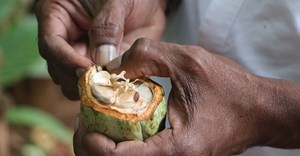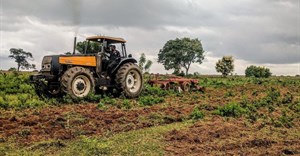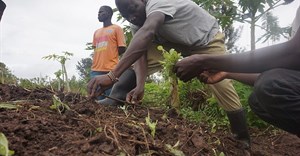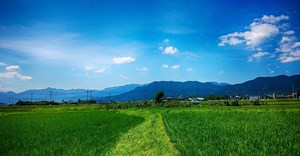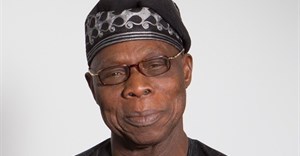Addressing Nigeria's insignificant contribution to global seed trade

According to stakeholders in the country’s seeds sector, Nigeria is losing much revenue as a result of this, as they noted that it had become important to address the situation. "It is common knowledge that Nigeria and Africa as a whole currently contribute insignificantly to and benefit little from the international seed trade as we are yet to embrace a host of initiatives that will enable us play and participate in the global business of agriculture," stated Phillip Olusegun, director-general, National Agricultural Seeds Council, in a document made available to our correspondent in Abuja,
He added: "One of such initiatives is having a national Plant Variety Protection law in place for the protection of Plant Breeder Right, which is an enabler and facilitator of greater investment in breeding and the development of new varieties of plants by the public and private sectors."
Operators in the seeds industry explained that a nation’s agricultural sector would only advance when farmers of the country have access to available crop varieties that can give the best yield and resist or tolerate various stresses that confront agricultural plants on the field nowadays. They noted that a country’s agricultural system would only advance, as far as it’s system of plant breeding which churns out the best genetics to its farmers' permits.
"When farmers have access to highly efficient varieties, they enjoy bumper harvest and have higher economic returns from their little effort because of the use of high yielding and stress tolerant varieties," said Olusegun.
Incorporating strong strong PVP systems
"We in the NASC believe that a strong PVP system is one vehicle that can help the council achieve its vision of creating a seed system in Nigeria that is market-driven and capable of producing and distributing high quality and improved planting materials that are available, accessible and affordable to all farmers."
This, Olusegun said, would make the council’s mission of transforming the Nigerian seed system into a leading seed industry in sub-Saharan Africa worthy of generating foreign exchange, key employer of labour and contributing positively to the country’s economy.
He stated that in 2010, the NASC together with stakeholders, started the journey for a strong PVP system with support from Iowa State University and the Bill and Melinda Gates Foundation under the Seed Policy Enhancement in African Region project. "This was when we successfully introduced the Genetic Access and Transfer Scheme into the Nigerian seed system to enable and allow the concept of licensing of genetics by genetic producers to genetic users in the country."
The GATS was approved as a policy for Nigeria by the National Council on Agriculture in 2013.
Policy, strategy framework development
Also, to ensure Nigeria gets global protection for intellectual properties developed by its agricultural research systems, the Agriculture Research Council of Nigeria, under the West African Agricultural Productivity Programme, in 2014 worked towards the development of a policy and strategy framework for intellectual property right management and commercialisation in agricultural research in Nigeria.
"This strategy will foster the enhanced development and commercialisation of a great number of research efforts that covers all aspects of agriculture. This great work must not be left uncompleted and NASC is ready to work with ARCN and other stakeholders to achieve this dream."
He said it was based on the council’s resolve to ensure that the GATS continues to work effectively that made the organisation to approach the Alliance for a Green Revolution in Africa "to support us in ensuring that Nigerian farmers get access to higher yielding varieties through the introduction of a PVP law in the country."
Olusegun called for collaboration, as he noted that the PVP law would not only benefit farmers but impact positively on Nigerians in general. "I wish to call on all stakeholders including institutions to join hands with us to deliver this laudable legislation for the benefit of our dear farmers whom we all work for and who in return put food on our tables. I must say that our collaboration will set the ball rolling for the introduction of a framework for the passage of a PVP law in Nigeria. It will also make Nigeria’s vision of becoming a member of the International Union for the Protection of New Plant Varieties possible.
"Membership of this great intergovernmental organisation will transform the seed system and increase Nigeria’s participation in the international seed trade. The country currently does not participate in the multibillion-dollar global seed trade as a result of the lack of a PVP law and not being a member of UPOV."
Government support essential
The Minister of Agriculture and Rural Development and the Board Chairman of the NASC, Chief Audu Ogbeh, speaking recently at the 2018 Seeds Fair and Farmers Day in Abuja, said the Federal Government would strengthen the council to enforce the seed law. Ogbeh said the government’s support would enable the NASC to continue to prevent those defrauding farmers through the sale of low-quality seeds, a development that had prevented Nigeria from contributing to global seed trade.
The minister revealed that 52% of inputs in agriculture were seeds or seedlings while fertiliser, pests, chemical, among others were supportive. He, however, stated that the NASC in its regulating activities had put in place a molecular laboratory for diagnosis of prevalent diseases that limit crop yields, especially those that were not visible to the eyes.
The minister said it was worthy to note that the NASC had over the years kept faith in its drive to ensure availability of quality seeds for farmers, but stressed that the importance of enabling laws in the seeds sector could not be overemphasised. He said the Seeds Fair was used as a platform for creating awareness among farmers and farming communities to showcase the array of highly improved crop varieties that could enhance productivity thereby boosting national food security.
Ogbeh said a new programme tagged, Agricultural Input and Mechanisation would be inaugurated soon. "It will be established in all the Local Government Areas across the country, whereby each LGA will have three locations where rural farmers can access quality seeds from accredited agents."
Seed improvment, accessibility
On his part, a board member of the NASC, Ibrahim Musa, observed that despite the level of professionalism of agricultural scientists and their discoveries to ensure massive food production for Nigerians, the main challenge confronting rural farmers was the accessibility of improved seeds.
Musa urged the Federal Government to support the promulgation of the required seeds law, as well as the establishment of accessibility areas for rural farmers and employment of the services of extension workers to achieve the objective.
The President, Nigeria Cassava Growers Association, Segun Adewumi, stated that it was high time the country implemented policies that would take the agricultural sector to the next level. "It is important that we have the required regulations that will support the production of quality seeds in Nigeria and boost the agricultural sector in particular. Of course, once the agricultural sector gets the required improvement, it will impact positively on the overall economy of Nigeria.
"This also applies in the production of cassava as we have always urged the government and development partners to support this sub-sector with the required processing facilities, for we know that this will tremendously impact positively on our economic performance as a nation."
Source: African Agri Council

The African Agri Council is a network of global executives, decision makers and key stakeholders in Africa’s agricultural industry. We connect executives with their peers, policy makers, investors and financiers and leading global service providers across Africa and around the world.
Go to: http://www.agricouncil.org/articles/

